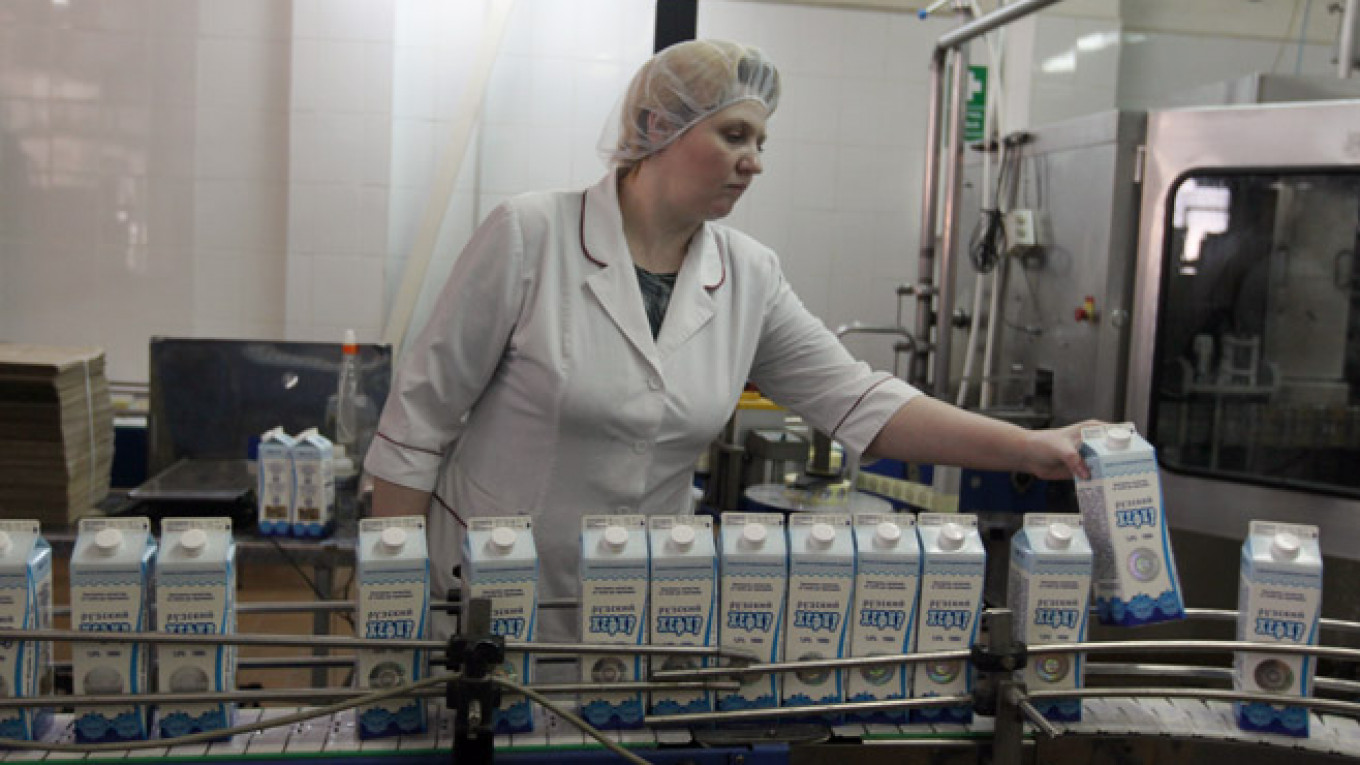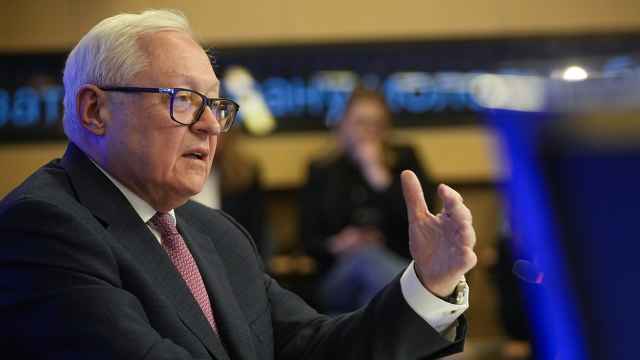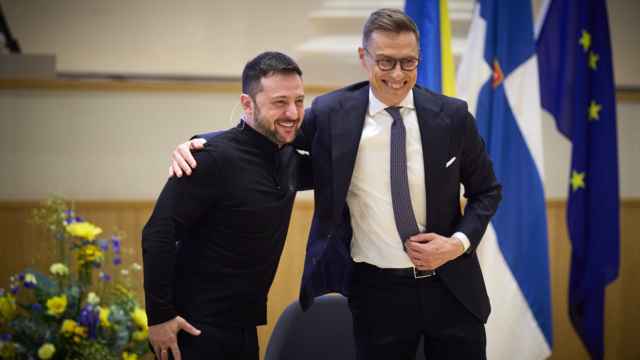Russia may negotiate a price control agreement with domestic food producers to prevent speculative price hikes that would affect inflation after it banned half its agricultural imports from the West, the agriculture ministry said late Friday.
Russia banned meat, fish, dairy, fruit and vegetables imports from the United States, the European Union's 28 member states, non-EU member Norway, Canada and Australia on Thursday in retaliation against sanctions over the Ukraine crisis.
Agriculture Minister Nikolai Fyodorov has acknowledged that the ban would cause a short-term spike in inflation, but said he saw no danger in the medium or long term as Russia started to look elsewhere for substitute imports.
The ministry, referring to a meeting with food sector unions, said: "Participants at the meeting discussed the possibility of signing with producers and agricultural products processors an agreement on … price policy to prevent any speculative rises in prices for agricultural products."
Russia has developed its own food industry over the past 20 years featuring homegrown firms, such as Cherkizovo and RosAgro, and local units of foreign companies, including Pepsico and Nestle.
According to the International Trade Center, a joint venture between the United Nations and the World Trade Organization, Russia imported $17.2 billion of food from the countries targeted by the ban, of which $9.2 billion was in the affected categories.
"While more imports from elsewhere may partly offset the supply shortage, Russian food prices will continue to creep higher," BNP Paribas said, noting that the ban would add 1.8 percentage points to Russia's consumer price index over 2014-15.
The prospect of higher inflation could weigh on retail sector shares, including Magnit, X5 Retail Group, Lenta, Dixy and O'Key, analysts said.
"It will be difficult to pass cost inflation on to the consumer immediately, so we expect some pressure on margins over the short run," VTB Capital consumer analyst Maria Kolbina said.
See also:
A Message from The Moscow Times:
Dear readers,
We are facing unprecedented challenges. Russia's Prosecutor General's Office has designated The Moscow Times as an "undesirable" organization, criminalizing our work and putting our staff at risk of prosecution. This follows our earlier unjust labeling as a "foreign agent."
These actions are direct attempts to silence independent journalism in Russia. The authorities claim our work "discredits the decisions of the Russian leadership." We see things differently: we strive to provide accurate, unbiased reporting on Russia.
We, the journalists of The Moscow Times, refuse to be silenced. But to continue our work, we need your help.
Your support, no matter how small, makes a world of difference. If you can, please support us monthly starting from just $2. It's quick to set up, and every contribution makes a significant impact.
By supporting The Moscow Times, you're defending open, independent journalism in the face of repression. Thank you for standing with us.
Remind me later.






